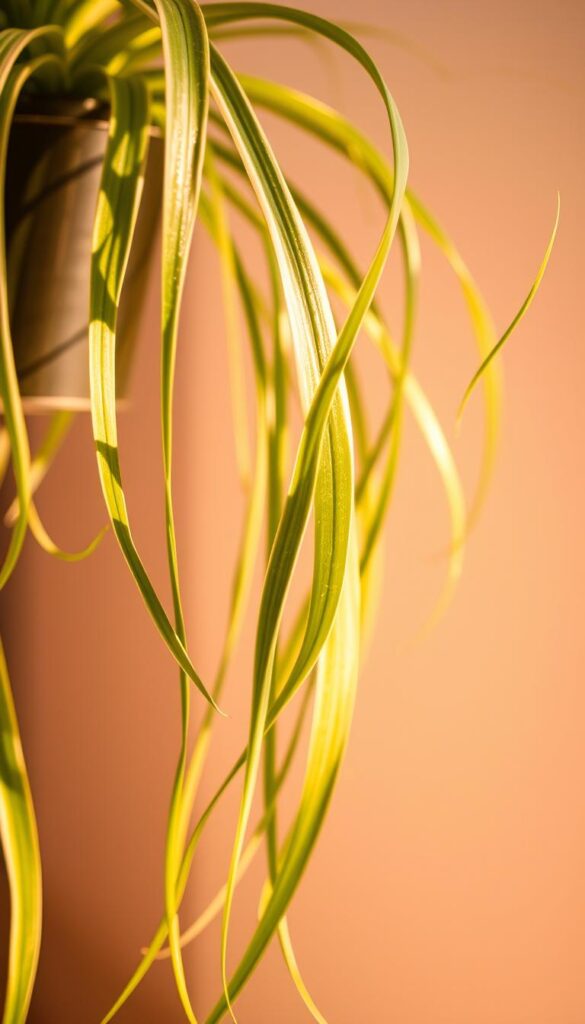I still remember the day I noticed the first brown tips on my spider plant. It was thriving just a week before, and suddenly, those crisp, golden edges appeared, signaling something was wrong. As a plant lover, it was frustrating to see my usually lush spider plant looking stressed. But this experience turned out to be a valuable lesson in understanding the common issues these plants face.
After some research and advice from horticulturists like Justin Hancock, I discovered that brown tips often stem from water stress and improper care. Factors like fluoride in tap water, low humidity, and over-fertilization can all contribute to this problem. Recognizing these signs early was key to restoring my plant’s health.
What I learned is that a few simple adjustments can make a big difference. By tweaking the watering schedule, ensuring proper light exposure, and adjusting fertilizer use, I was able to nurse my spider plant back to its vibrant self. The journey taught me the importance of understanding the basics of plant care before jumping into solutions.
If you’re facing a similar issue, rest assured that reversing brown tips is achievable with the right approach. Let’s dive into the straightforward steps that worked for me and can work for you too.
Understanding the Causes of Brown Tips on My Spider Plant
Identifying why your spider plant is developing brown tips is the first step toward restoring its health. Environmental factors and care practices often play a significant role.
Common Issues: Underwatering, Overfertilization, and Low Humidity
Several key issues can lead to brown tips on your spider plant. Underwatering is a common culprit, as the soil can become too dry. Overfertilization is another problem, as excess nutrients can damage the roots. Low humidity levels can also stress the plant, causing the leaves to develop brown edges.
| Cause | Effect | Solution |
|---|---|---|
| Underwatering | Soil becomes too dry, stressing the plant | Water thoroughly, allowing soil to dry slightly between waterings |
| Overfertilization | Excess nutrients damage roots | Dilute fertilizer to half the recommended strength |
| Low Humidity | Leaves lose moisture, leading to brown tips | Mist the plant regularly or use a humidifier |
Checking the topsoil moisture before watering can prevent underwatering. Adjusting your care routine, such as misting the leaves or using a humidifier, can help maintain the right environment for your spider plant. Recognizing these factors is crucial for diagnosing the issue accurately and implementing the right solution.
https://www.youtube.com/watch?v=wiJ_PFgCQ2c&pp=ygUJI3RyaW1saWx5
How I Cure Spider Plant with Brown Tips Using Simple Steps
After identifying the causes, I focused on practical solutions to restore my spider plant’s health. By adjusting my care routine, I noticed significant improvements in just a few weeks.
My Watering and Humidity Techniques
To prevent water stress, I ensure the top two inches of soil are dry before watering. This simple check helps avoid overwatering. I also use a pebble tray filled with water to increase humidity around my plant. Regular misting adds moisture, creating a healthier environment for my spider plant.
Adjusting Light and Fertilization for Better Growth
Moving my plant to a spot with bright, indirect sunlight made a big difference. I also switched to a weak, water-soluble fertilizer during the growing season to prevent salt buildup. These small changes led to healthier leaves and vibrant growth.
| Step | Action | Benefit |
|---|---|---|
| Check Soil Moisture | Insert finger into top 2 inches of soil | Prevents overwatering |
| Use Pebble Tray | Place pot on tray with water | Boosts humidity |
| Mist Regularly | Spray leaves with water daily | Maintains humidity |
| Provide Indirect Light | Move to bright, shaded area | Promotes healthy growth |
| Dilute Fertilizer | Use half recommended strength | Prevents root damage |
By following these steps, I successfully restored my spider plant’s health. Consistent care made all the difference, and I encourage you to try these methods for your plant.

Optimizing Your Spider Plant Care Routine
Creating a consistent care routine is essential for keeping your spider plant healthy and preventing brown tips. By focusing on soil quality, drainage, and temperature, you can create an environment where your plant thrives.
Maintaining Proper Soil and Temperature Conditions
The right soil and temperature conditions are crucial for your spider plant’s health. Using a well-draining potting mix helps prevent waterlogged soil, which can lead to root rot. If you notice roots growing out of the drainage holes, it’s time to repot your plant into a slightly larger container with fresh soil.
| Factor | Ideal Condition | Benefit |
|---|---|---|
| Soil Type | Well-draining potting mix | Prevents root rot |
| Humidity | 40-60% | Keeps leaves healthy |
| Temperature | 65-75°F | Supports growth |
| Light | Bright, indirect | Prevents scorching |
To maintain the ideal environment, use a humidifier and ensure your plant is away from drafts. Check the soil moisture by inserting your finger into the top two inches. By optimizing these conditions, you’ll notice improved leaf quality and fewer brown tips.
Wrapping Up My Journey to a Healthier Spider Plant
My journey from dealing with brown tips to growing a thriving spider plant has been both challenging and rewarding. By addressing key issues like inconsistent watering, low humidity, and improper fertilization, I transformed my plant’s health.
Regular soil checks, using a pebble tray for humidity, and ensuring bright, indirect light made significant differences. Adjusting fertilizer strength and flushing the soil periodically also played crucial roles in restoring my plant’s vibrancy.
Patience and close observation are essential. Even small care improvements can lead to noticeable health enhancements. Monitoring for early signs of issues and staying proactive with adjustments will help maintain your plant’s well-being.
Enjoy the journey of nurturing your spider plant and learning its needs. Share your experiences and tips for preventing brown tips in the comments below!
